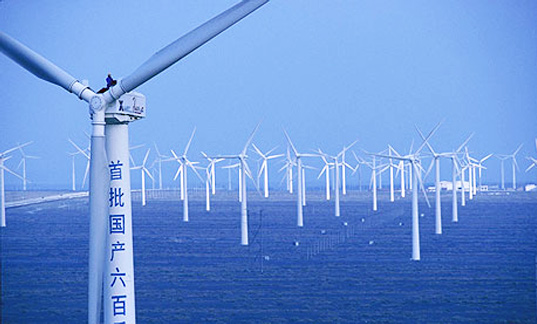11 Dec 2024

Tired Earth
By The Editorial Board

In the West, bad children get coal in their Christmas stockings. In China, everyone gets coal, as consumption peaks during the winter-heating season.
Its leaders want to change this. In line with President Xi Jinping’s recent call for a “better life” for Chinese citizens, coal power curbs this winter are rolling across northern China.
China’s green push has a problem, however. Electric power is the country’s most indebted sector, with total debt of 7.8 trillion yuan ($1.2 trillion) at the end of 2016, according to the Asean+3 Macroeconomic Research Office. A good chunk of that is sunk into coal power plants with the capacity to produce more than one billion kilowatts of electricity, roughly three times the coal power capacity of the U.S.
Keeping all those coal-fired power plants current on their loans is a key constraint on China’s ability to quickly switch to greener power. Part of the problem is pricing. High state-set power prices make building new coal power plants attractive when coal prices fall, boosting margins. Such investment has recovered strongly in recent months as coal price gains have ebbed—newly installed thermal coal capacity was up 8% year-to-date in October, outpacing that of new hydropower, wind and nuclear plants.
A further problem is weak demand, which paired with still-rapid investment has pushed power-plant run rates down continuously. Chinese coal power plants, which in 2010 ran an average of nearly 450 hours a month, now only run around 300. If that number keeps trending down, it will drag down utilities’ repayment ability—particularly since regulators have made it clear that they won’t permit another coal-price crash like in 2015.
All of this will make an expeditious switch away from coal power rather difficult. Operating earnings for electric power plants are already only enough to cover interest payments by two times, compared with an interest cover ratio of nine times across China’s industrial sectors.
China’s switch to gas seems inevitable given the nation’s increasing wealth and dissatisfaction with terrible air pollution. But large scale adoption still needs more flexible power pricing, more support for private gas importers, and—perhaps most importantly—a solution to all that coal power debt.
In the meantime, be careful of inflated forecasts for gas demand in the world’s second largest economy.
Source : www.wsj.com
Comment